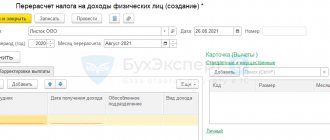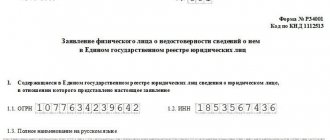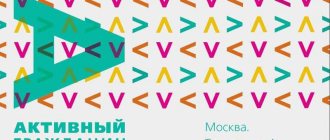Almost every company (IP) at certain stages of its activities needs additional cash injections. Perhaps they will be used to establish or develop a business, purchase expensive equipment, maintain and improve the financial condition of the enterprise, etc. At the same time, the sources of raising funds are different. The most commonplace of them is a bank loan. However, not only a credit institution, but also a private person (for example, a founder, director, employee or even a stranger) can borrow money under a loan agreement. Often such an agreement provides for the payment of interest to the “physicist” - the lender for the use of borrowed funds, as a result of which he receives taxable income. loan interest in . But first, a little background information.
Concept and general characteristics of a loan agreement
Borrowing relations are regulated by civil legislation (§ 1, Chapter 42 of the Civil Code of the Russian Federation). They are formalized, as a rule, by a loan agreement - a bilateral agreement between the lender and the borrower, according to which the first transfers ownership of the loan item (money or other things defined by generic characteristics), and the second undertakes to return an equivalent item (i.e., such a thing) within a specified period of time. the same amount of money or an equal number of other things received by him of the same kind and quality) (paragraph 1, paragraph 1, article 807 of the Civil Code of the Russian Federation, paragraph 1, article 810 of the Civil Code of the Russian Federation).
The agreement is recognized as real (i.e. concluded) from the moment of transfer to the borrower of money or other things that are the subject of the loan (clause 2 of Article 433 of the Civil Code of the Russian Federation, paragraph 2 of clause 1 of Article 807 of the Civil Code of the Russian Federation).
The borrower and lender can be legal entities and individuals, as well as the state. In this case, the loan agreement is drawn up in writing if:
- one of the parties to the loan agreement is a legal entity or individual entrepreneur (clause 3 of Article 23 of the Civil Code of the Russian Federation, clause 1 of clause 1 of Article 161 of the Civil Code of the Russian Federation, clause 1 of Article 808 of the Civil Code of the Russian Federation);
- an agreement is concluded between citizens for an amount exceeding 10 minimum wages (clause 1 of Article 808 of the Civil Code of the Russian Federation).
(Recall that in accordance with paragraph 2 of Article 5 of the Federal Law of June 19, 2000 No. 82-FZ, for calculating payments for civil obligations, the basic minimum wage amount is applied equal to 100 rubles. This means that an individual draws up a transaction on paper with the amount loan 1000 rubles and above.)
By the way! Failure to comply with the written form does not invalidate the loan agreement. True, in the event of a dispute, the parties will no longer be able to refer to witness testimony to confirm the transaction and its terms (clause 1 of Article 162 of the Civil Code of the Russian Federation). Although they have the right to present written and other evidence (for example, a receipt from the borrower confirming receipt of money (clause 2 of Article 808 of the Civil Code of the Russian Federation)).
The subject of a loan agreement is most often cash (cash and non-cash), less often - things defined by generic characteristics (goods, raw materials, materials, securities, etc.). A generic sign means that things cannot be individualized, that is, they cannot be separated from the general mass of things of the same kind (for example, grain, flour, gasoline, etc.). If this can be done through individual characteristics, then things are recognized as individually defined (for example, these are land plots, buildings, structures, vehicles, registered securities, etc.). They cannot be transferred under the loan agreement!
For the use of borrowed funds, the borrower usually pays interest to the lender. Although the contract may stipulate the opposite, i.e. the loan will be interest-free (clause 1 of Article 809 of the Civil Code of the Russian Federation).
Note! A loan agreement is considered compensated (that is, issued with interest), even if it does not contain a condition on the amount and procedure for paying interest. An exception to this rule is (clause 2 of Article 809 of the Civil Code of the Russian Federation): - an agreement that is concluded between citizens for an amount of up to 50 minimum wages (5,000 rubles) and is not related to the entrepreneurial activity of at least one of the parties; - an agreement under which not money, but things are transferred. In these cases, the loan is assumed to be gratuitous (interest-free), even if this is not directly “said” in the text of the agreement. At the same time, this does not prevent the contracting parties from fixing the interest clause.
The procedure and timing of loan repayment are determined by the agreement (clause 1 of Article 810 of the Civil Code of the Russian Federation). If the parties do not agree on this condition, then the loan agreement is considered unlimited. Under an open-ended agreement, the lender has the right to demand repayment of the debt at any time, and the borrower, in turn, is obliged to repay it within 30 days from the date of presentation of the corresponding demand.
Notice! The borrower can repay the interest-free loan early (unless otherwise provided by the agreement). But early repayment of an interest-bearing loan is allowed only with the consent of the lender (clause 2 of Article 810 of the Civil Code of the Russian Federation).
Cash settlement limit under the loan agreement
If the subject of the loan agreement is cash, then the borrower and the lender must comply with the cash payment limit, which is equal to 100,000 rubles. in accordance with clause 6 of Bank of Russia Instructions No. 3073-U dated October 7, 2013 (hereinafter referred to as Instructions No. 3073-U). That is, this is the maximum amount of cash that the parties to the transaction can transfer to each other.
This limit applies to settlements under one agreement (clause 2 of Instructions No. 3073-U):
- between organizations;
- between the organization and the individual entrepreneur;
- between IP and IP.
Note! The cash settlement limit does not apply to settlements under a loan agreement with an individual who is not engaged in entrepreneurial activities (clause 5 of Instructions No. 3073-U). Therefore, an organization (IP) can borrow any amount of cash from its employee (or any other citizen), and vice versa.
For violating (exceeding) the cash payment limit, guilty persons may be fined under Article 15.1 of the Code of Administrative Offenses of the Russian Federation:
- legal entity - in the amount of 40,000 rubles. up to 50,000 rubles;
- officials - in the amount of 4,000 rubles. up to 5,000 rub.
Refinancing rate
From January 1, 2016, the Bank of Russia does not set an independent value for the refinancing rate; it is equated to the value of the Bank of Russia key rate determined on the corresponding date (Instruction of the Bank of Russia dated December 11, 2015 No. 3894-U “On the refinancing rate of the Bank of Russia and the key Bank of Russia rate").
According to the Information published on the website www.cbr., the Board of Directors of the Bank of Russia on April 28, 2017 decided to reduce the key rate to 9.25% per annum from May 2, 2017. Hello Guest! Offer from "Clerk"
Online professional retraining “Accountant on the simplified tax system” with a diploma for 250 academic hours . Learn everything new to avoid mistakes. Online training for 2 months, the stream starts on March 15.
Sign up
Personal income tax on interest paid to an individual under a loan agreement
The interest that an organization / individual entrepreneur (borrower) pays to an individual (lender) under a paid loan agreement is the latter’s income, which is subject to personal income tax at the rate (clause 1, clause 1, article 208 of the Tax Code of the Russian Federation, clause 1, article 209 of the Tax Code of the Russian Federation, Clause 1 of Article 210 of the Tax Code of the Russian Federation):
- 13% – if the lender is a resident of the Russian Federation (clause 1 of Article 224 of the Tax Code of the Russian Federation);
- 30% – if the lender is not a resident of the Russian Federation (clause 3 of Article 224 of the Tax Code of the Russian Federation).
Moreover, in relation to such income, the borrower is recognized as a tax agent (clause 1 and clause 2 of Article 226 of the Tax Code of the Russian Federation, Article 24 of the Tax Code of the Russian Federation, letter of the Federal Tax Service of Russia dated May 26, 2017 No. BS-4-11/, letter of the Ministry of Finance of Russia dated 02/01/2016 No. 03-04-06/4448). That is, he must deduct from it and transfer it to the personal income tax budget.
By the way, an individual’s income, subject to personal income tax at a rate of 13% in accordance with clause 1 of Article 224 of the Tax Code of the Russian Federation (including interest on loans), can be reduced by standard tax deductions for himself and / or his children (clause 3 of Article 210 of the Tax Code RF, clause 1 of article 218 of the Tax Code of the Russian Federation). Therefore, the lender (a resident of the Russian Federation) has every right to contact the borrower for deductions, and he, in turn, will have to provide them.
When material benefits are exempt from personal income tax
Based on paragraph 1 of Art.
210 of the Tax Code of the Russian Federation, income of an individual in the form of material benefits is included in the tax base for personal income tax. The specifics of calculating the tax base when receiving income in the form of material benefits are established by Art. 212 of the Tax Code of the Russian Federation.
One of the types of material benefit subject to personal income tax is the material benefit from savings on interest for the taxpayer’s use of borrowed (credit) funds received from organizations or individual entrepreneurs. However, there are exceptions in which material benefits are exempt from personal income tax (see diagram 1).
In the last two cases, material benefit is exempt from taxation, provided that the taxpayer has the right to receive a property tax deduction established by paragraphs. 3 p. 1 art. 220 of the Tax Code of the Russian Federation, confirmed by the tax authority in the manner provided for in paragraph 8 of Art. 220 Tax Code of the Russian Federation. Similar explanations are contained in letters of the Ministry of Finance of Russia dated 09.21.16 No. 03-04-07/55231, dated 08.5.16 No. 03-04-07/46125, dated 06.16.16 No. 03-04-05/ 35061, dated March 18, 2016, No. 03-04-06/15118.
This exemption applies even if the taxpayer for any reason did not take advantage of the property deduction for acquired property (letter of the Ministry of Finance of Russia dated September 4, 2009 No. 03-04-05-01/671).
The exemption of such material benefits from taxation is also not affected by the beginning of the use of property deductions (letters of the Ministry of Finance of Russia dated July 24, 2013 No. 03-04-05/29212, dated February 9, 2012 No. 03-04-05/7–136) .
Material benefits are also exempt from personal income tax if the borrower continues to repay his loan obligations after the property tax deduction has been fully used. This follows from the provisions of paragraphs. 1 clause 1 art. 212 of the Tax Code of the Russian Federation and is confirmed by letters of the Ministry of Finance of Russia dated December 16, 2014 No. 03-04-05/64921, dated April 8, 2014 No. 03-04-05/15908, dated August 8, 2012 No. ED-3-3 /2805.
Date of actual receipt of income in the form of interest on the loan
For the purpose of calculating personal income tax, the date of actual receipt of income in the form of interest on the loan is determined:
- as the day of payment of such income to an individual - if interest is paid in cash (clause 1, clause 1, article 223 of the Tax Code of the Russian Federation);
- as the day of transfer of property to an individual - if interest is paid in kind (clause 2, clause 1, article 223 of the Tax Code of the Russian Federation).
The Russian Ministry of Finance also drew attention to this in letter dated June 19, 2017 No. 03-04-05/38138.
Remember! The frequency of interest payments is established by the loan agreement. It can be daily, monthly, quarterly or some other. If there is not a word about this in the agreement, then interest must be paid every month until the day the loan amount is repaid (clause 2 of Article 809 of the Civil Code of the Russian Federation).
2-NDFL income codes for 2022, introduced in the latest edition of the order
The list of income codes of the Federal Tax Service is going to be supplemented for the last time in 2021. The draft with amendments was prepared by the Federal Tax Service dated November 20, 2020 - Order on amendments to appendices No. 1 and No. 2 to the order of the Federal Tax Service of Russia dated September 10, 2015 No. MMV-7-11 / [email protected] “On approval of codes for types of income and deductions” . New income and deduction codes were introduced, and some existing codes were canceled and adjusted.
The Federal Tax Service reports that the new codes will not need to be used when compiling 2-personal income tax for 2022, even if the Ministry of Justice registers the order and it comes into force in December 2022. Organizations can spend this time updating software. But in a similar situation at the end of 2016, the Federal Tax Service obliged everyone to fill out reports taking into account the changes.
The new version of the order will cancel codes 1400 and 2400, which are intended for rental income, but will instead add seven new codes for types of income:
Income code 1401 - income received from rental or other use of residential real estate.
Income code 1402 - income from rental or other use of property, except income related to group 1401.
Income code 1500 - income from contracts for the purchase and sale (exchange) of securities, which are taxed on the basis of paragraph. 2 p. 1 art. 226 Tax Code of the Russian Federation.
Income code 2004 - monthly cash rewards from the federal budget to teachers - class teachers from state and municipal educational organizations.
Income code 2017 - daily allowance over 700 rubles for each day of a business trip in the Russian Federation and no more than 2,500 rubles for each day of a business trip outside the Russian Federation.
Income code 2763 - the amount of financial assistance provided by an organization carrying out educational activities in basic professional educational programs, students (cadets), graduate students, adjuncts, residents and assistant trainees.
Income code 3011 - winnings from participation in the lottery.
The description of three codes will also be adjusted:
Generate a 2-NDFL certificate automatically in the online service Kontur.Accounting. Here you can keep records, pay salaries and submit reports.
Source







